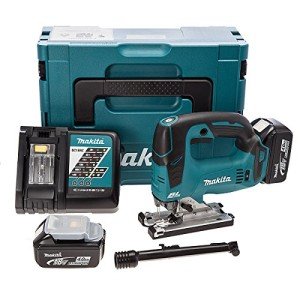Nine Things That Your Parent Taught You About Mitersaw
페이지 정보
작성자 Adriene Guerin 작성일 25-11-06 16:12 조회 3 댓글 0본문

The Essential Guide to Miter Saws: Understanding, Choosing, and Using the Perfect Tool
Introduction
Miter saws are vital tools in the toolbox of both amateur and professional woodworkers. These versatile devices allow users to make accurate crosscuts and angled cuts, making them perfect for a variety of woodworking tasks, from framing to cabinetry. In this comprehensive post, we will explore the world of miter saws, covering their types, features, and essential factors to consider when picking one. We'll also answer some frequently asked questions, making sure that readers are fully equipped to make informed choices.
What is a Miter Saw?
A miter saw is a power tool that features a circular blade and is used for making accurate crosscuts and miters at different angles. The saw is generally installed on a hinged arm that permits the user to reduce the blade down onto the workpiece, making it procedure effective and exact.
Key Components of a Miter Saw
| Part | Description |
|---|---|
| Blade | Circular cutting blade, readily available in different sizes. |
| Base | The flat surface area that supports the workpiece. |
| Miter Gauge | Adjustable mechanism to set the angle of cuts. |
| Bevel Adjustment | Permits angled cuts along the vertical airplane. |
| Fence | The directing edge that keeps wood steady during cutting. |
Kinds Of Miter Saws
There are several kinds of miter saws, each developed for specific cutting needs. Below is a comparison of the most typical types:
| Miter Saw Type | Description | Best For |
|---|---|---|
| Standard Miter Saw | Fundamental model, suitable for making quick crosscuts and miter cuts. | Small jobs and light-duty jobs. |
| Compound Miter Saw | Can tilt in one instructions for beveled cuts, perfect for complicated jobs. | Crown molding, wooden frames, etc. |
| Sliding Compound Miter Saw | Offers sliding capabilities; permits for wider cuts. | Larger pieces, thicker products. |
| Dual-Bevel Miter Saw | Can tilt in both instructions, making it versatile. | Specialists who work with complex angles. |
Picking the Right Miter Saw
When it concerns choosing the best miter saw, several aspects enter into play:
- Cutting Capacity: Consider the size of products you prepare to deal with. Sliding miter saws usually offer bigger cutting capacity.
- Angle Adjustment: Look for features like dual bevels and accurate angle settings if your work needs intricate cutting.
- Mobility: If you require to move your saw often, think about the weight and style of the design.
- Power: Thicker products require more power; a greater amperage motor is more effective for such jobs.
Functions to Consider
When evaluating miter saws, the following functions can considerably improve your cutting experience:
| Feature | Description |
|---|---|
| Laser Guide | Projects a line on the workpiece for increased precision. |
| Electric Brake | Stops the blade rapidly for improved safety. |
| Dust Collection | Keeps your work area clean and enhances exposure. |
| User-Friendly Controls | Instinctive settings that streamline adjustments. |
Safety Tips for Using a Miter Saw
Safety should constantly be a leading concern when operating any power tool. Here are some necessary security pointers:
- Wear Safety Gear: Always use shatterproof glass and ear security.
- Examine Your Workpiece: Ensure there are no foreign things in the cutting path.
- Protect Your Work: Use secures or a vice to hold the workpiece consistent.
- Do Not Overreach: Keep a steady position by placing yourself properly.
Upkeep Tips for Miter Saws
To make sure that a miter saw runs smoothly and lasts long, routine upkeep is essential. Here are some pointers:
- Keep the Blade Sharp: Dull blades can produce friction and damage the product.
- Tidy the Double Mitre Saw Regularly: Remove dust build-up and particles, especially from the blade and motor.
- Examine the Alignment: Periodically confirm that the blade is lined up properly to make sure precision.
- Oil Moving Parts: Apply machine oil on the moving parts to decrease friction.
Frequently asked question Section
1. Can a miter saw cut through thick wood?
Yes, however ensure you select a saw with the suitable cutting capacity and a sharp blade.
2. What size miter saw do I need?
The size depends on your jobs. A 10-inch saw is perfect for many hobbyists, while a 12-inch saw can deal with wider boards and thick materials.
3. Is it safe to use a miter saw alone?
It is normally safe to use a miter saw alone, but guarantee you follow all security standards and keep a clear workspace.
4. How can I lengthen the life of my miter saw?
Routine maintenance, like cleansing and sharpening the blade, in addition to proper storage, will help prolong its life expectancy.
5. What's the difference between a compound miter saw and a sliding compound miter saw?
A Compound Mitre Saw miter saw can make beveled cuts in one direction, while a sliding compound miter saw has a sliding feature to allow for larger cuts.
Miter saws are important tools that can elevate the quality and effectiveness of woodworking tasks. Comprehending the different types, Mitersaw features, and precaution can assist both beginners and skilled professionals make notified decisions. With regular maintenance and appropriate use, a Miter Chop Saw saw can show to be an invaluable addition to any workshop, guaranteeing clean and accurate cuts every time. Whether you're framing a home or crafting detailed moldings, the ideal miter saw will help you attain your vision with ease and accuracy.
- 이전글 What's The Job Market For How Much Is A Kia Key Fob Professionals?
- 다음글 How Dieting Makes People Obese
댓글목록 0
등록된 댓글이 없습니다.


